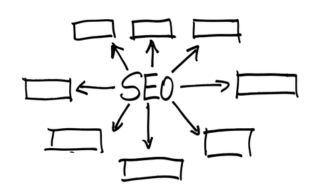Choosing the right career path is something that requires careful consideration. For many people, the tech sector is one that seems a good choice. As tech becomes ever more central to our lives, careers within it look a wise move. From top apps to buy groceries online to those that allow us to control our heating virtually, or other tech advances such as online gaming or social media platforms, it is an industry that will only get larger.

The other great thing about tech as a sector is that it has a wide range of roles to move into. If you like working with data, then data science and data analytics might appeal. Many people mistakenly assume that they are the same thing though. This is not true, however – as the below shows, there are some vital differences between the two.
Contents
What is data science?
Data science is much more concerned with looking at collected data and working out why a particular trend or scenario is currently happening. It also focuses on how likely current trends are to shape the future of any sector or business within it.
This different focus also means that the skills needed for data science are a little different from those needed for analytics. Data science is heavily STEM-oriented and this means that you usually need high-level math, problem-solving skills and computer science knowledge to work in it. The type of tasks you do in data science are also a little different. Common jobs include creating new data modeling processes, coding algorithms and predictive modeling.
Due to its more advanced nature, data science can require higher-level qualifications. An online data science masters from Kettering University is a good course to study in this regard and can help get you ready for a data science role. The online nature of this course is not only more convenient, but you also still get the excellent support that this university is known for.
How does data analytics differ?
Now that we have looked at what makes up data science, it is worth delving into data analytics. This role still involves looking at data that any organization collects, but focuses solely on working out what is happening currently.
Data analytics can often have a lower barrier to entry, due to its less rigorous demands. This can mean that these roles are easier to find and do not need high-level qualifications to get. Due to their lower entry barrier, salary levels in data analytics can be lower than data science on average. Data analysts will usually carry out tasks around examining large sets of data, and this is different from what you might do as a data scientist. This is still an in-demand role for many businesses though.
Data science and data analysis are different
As the above shows, there are some pretty key ways that these two tech-based career choices differ. While both work with data, how they do it and what they are trying to achieve is not that similar. The best thing is to really think about which role would suit you best and then find out how to get your foot in the door.



